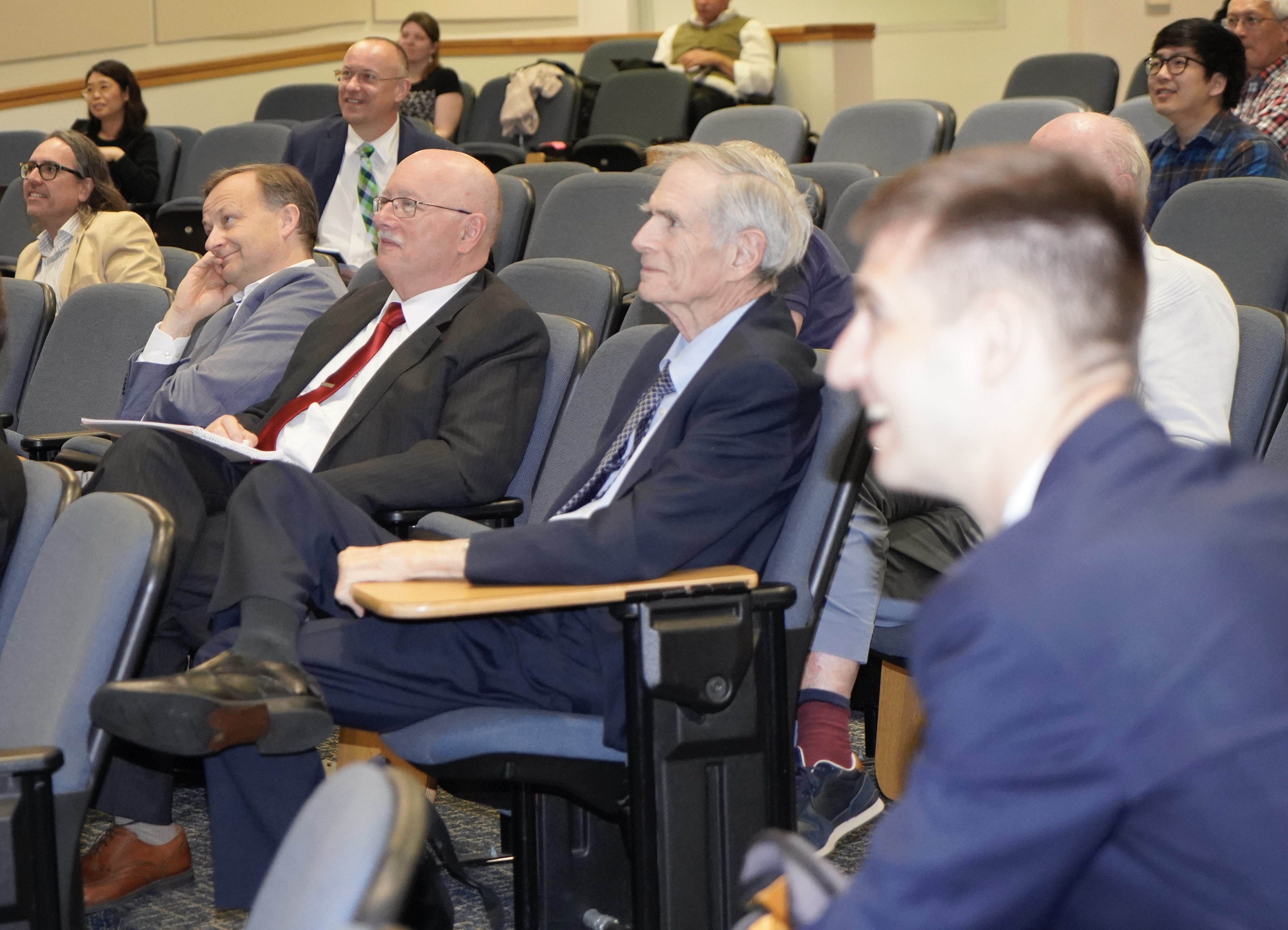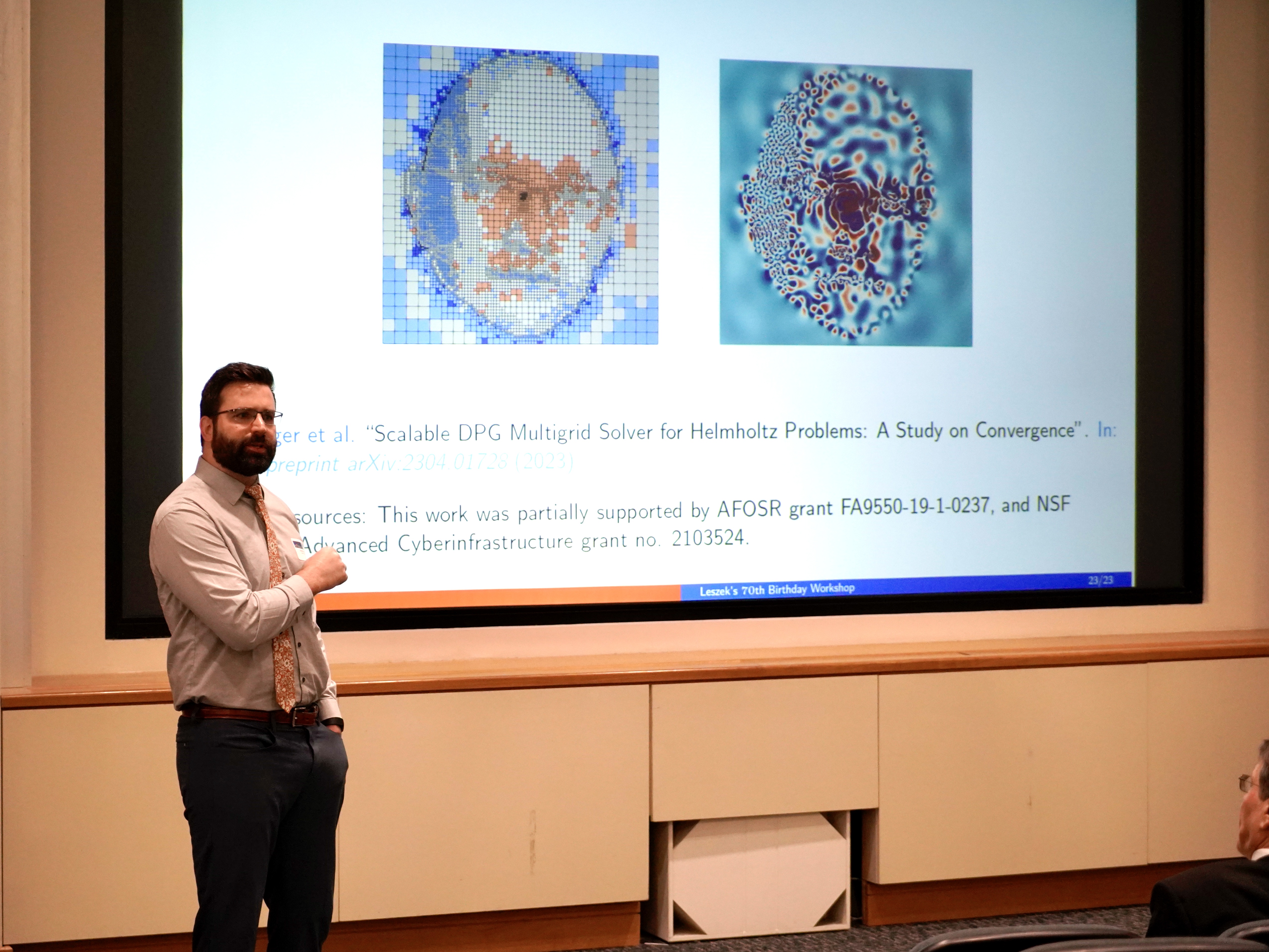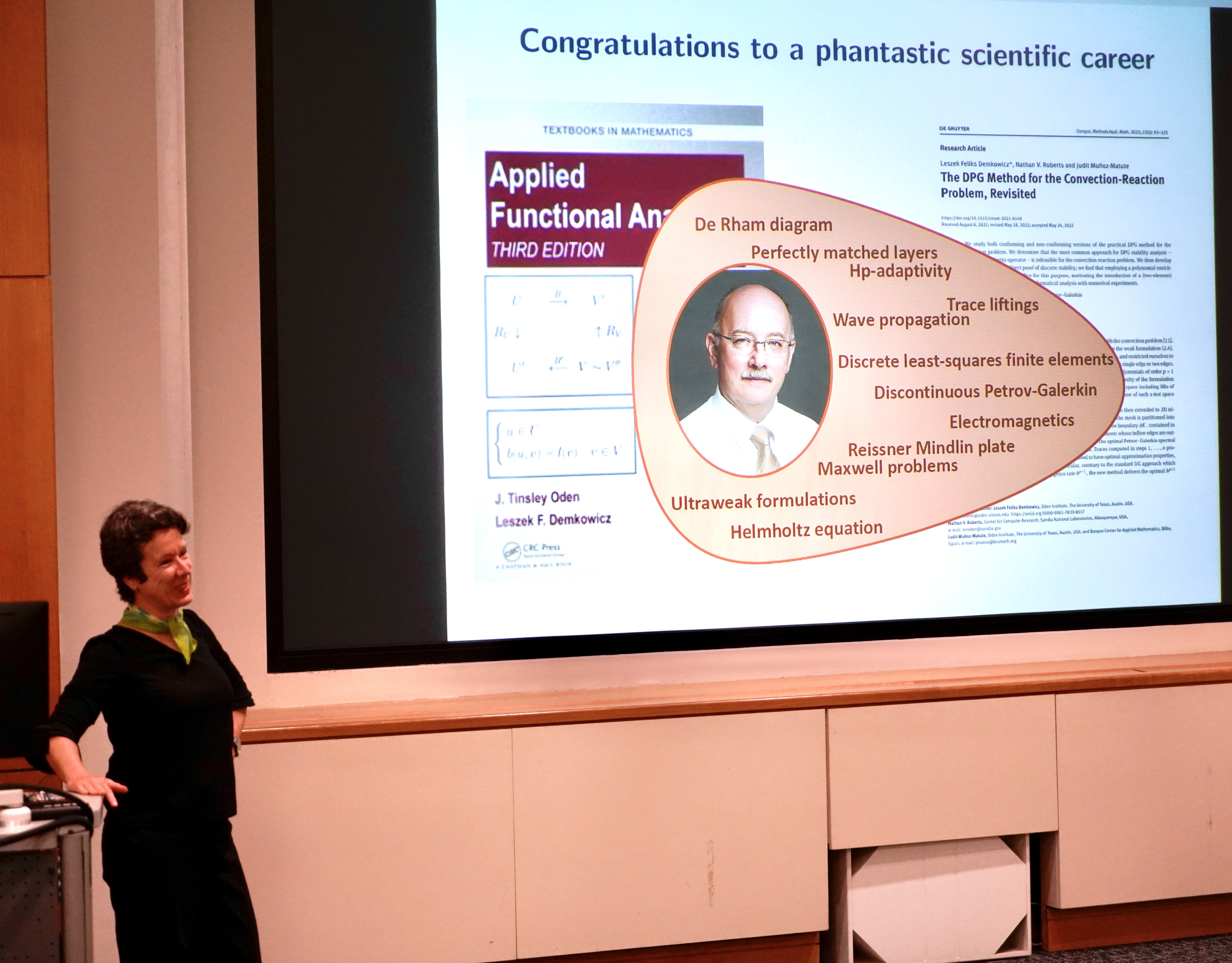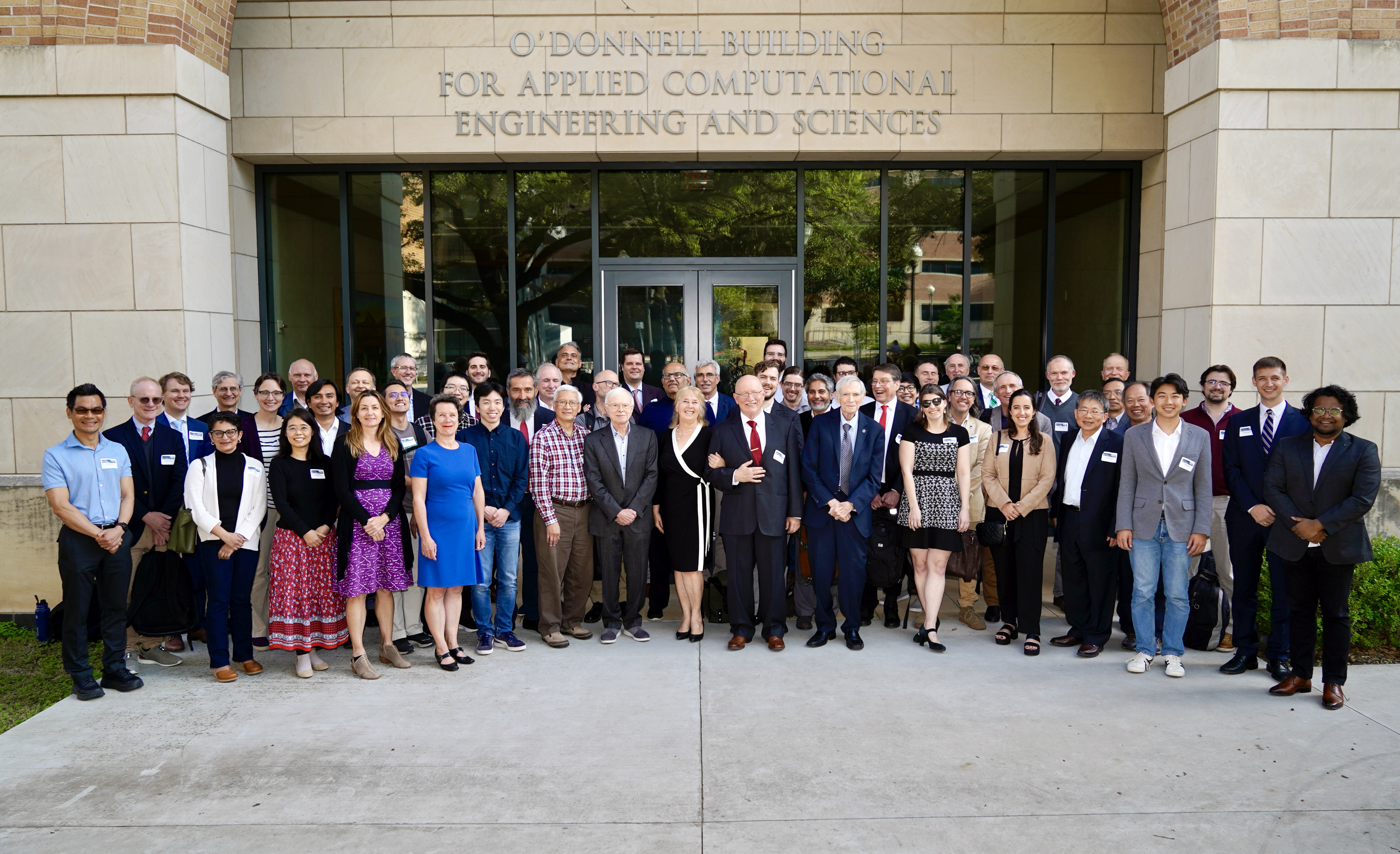Guests from around the globe gathered for a celebratory workshop on April 11 in honor of Leszek Demkowicz’s 70th Birthday, hosted by the Oden Institute for Computational Engineering and Sciences at The University of Texas at Austin. Speakers shared research and words of appreciation for Demkowicz’s contributions in the fields of computational mathematics and mechanics and beyond.
The event kicked off the evening prior with a pre-workshop reception at the Demkowicz home. The next morning guests filed into the Avaya Auditorium for a day of learning and discussion across four sessions interrupted by the occasional coffee or lunch breaks.
In her opening remarks, Oden Institute Director Karen Willcox paid homage to Demkowicz. “I want to wish Leszek Happy Birthday - at 70, he’s in the middle of his career at the Oden Institute,” she joked. On a more serious note, Willcox said when the Institute needs something, he’s always there, noting that he worked to build the Institute into what it is today.
In addition to his roles as Oden Institute’s Assistant Director and core faculty member, Demkowicz is a valued professor. “He is both an incredible mentor to his students and an incredible teacher. I hear teachers complain about their ratings, claiming they teach highly technical classes, and that’s why students don’t like it. But Leszek teaches the most technical classes that are extremely hard on the students, and yet he pulls down nearly perfect teaching scores every semester. That is a real sign of how much he cares about his students having a truly deep understanding of functional analysis.”



